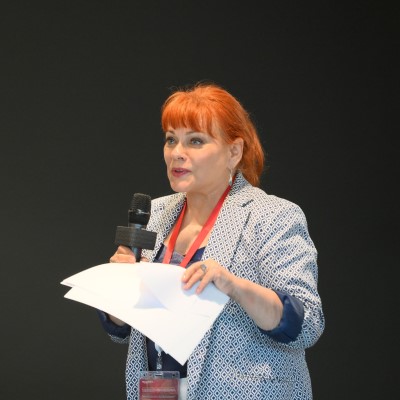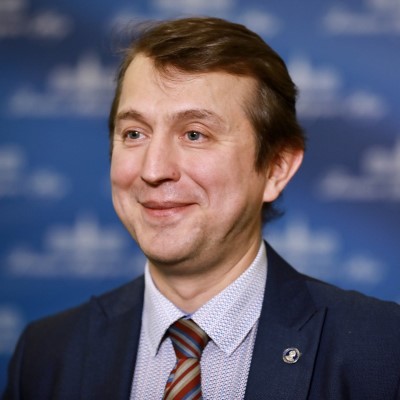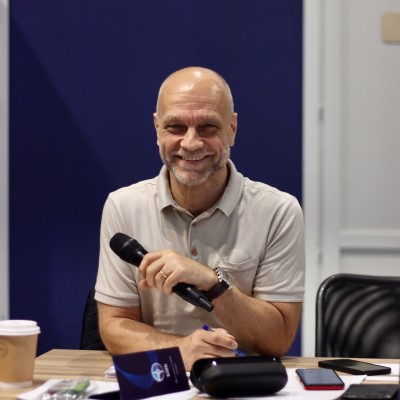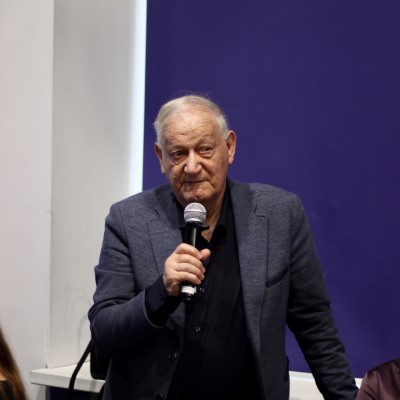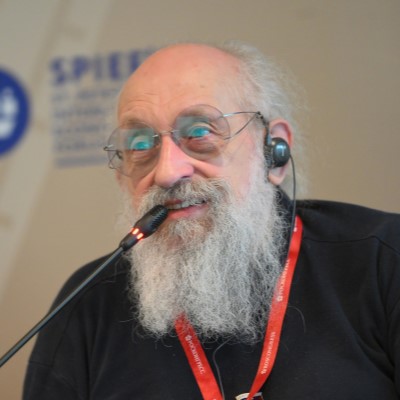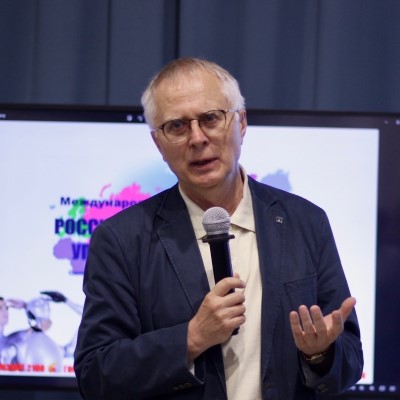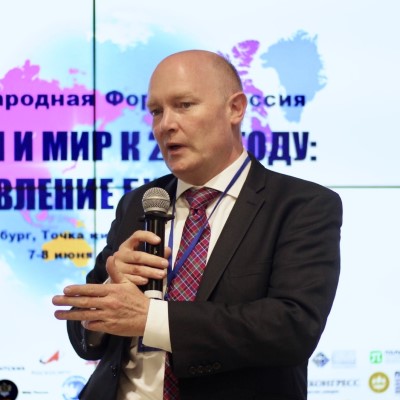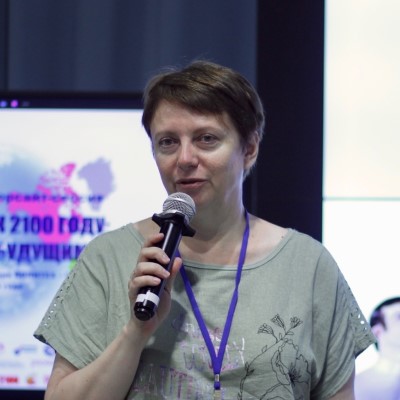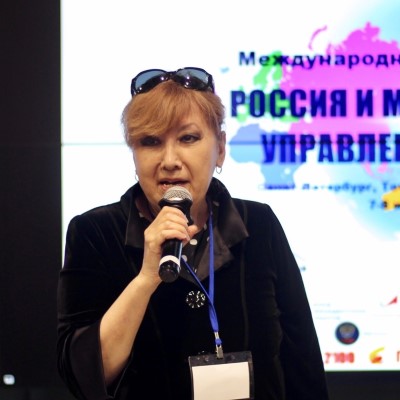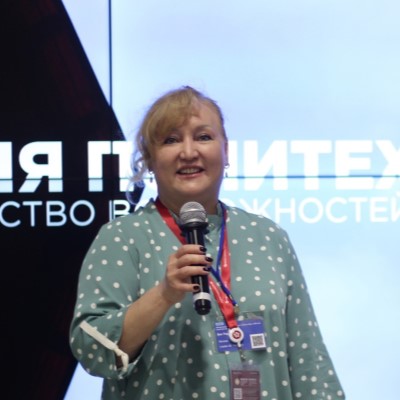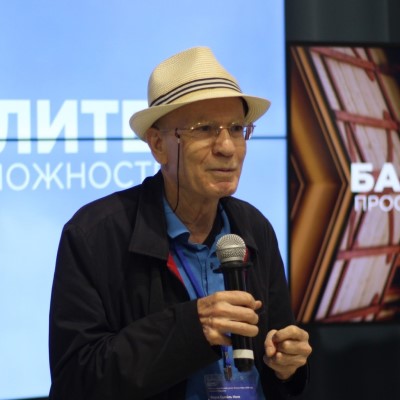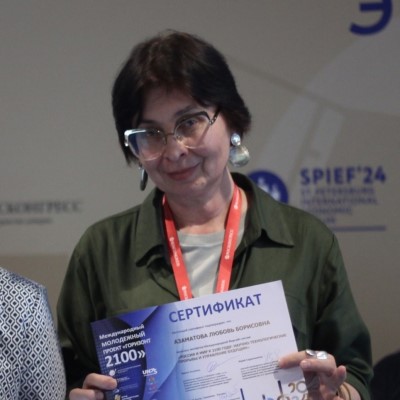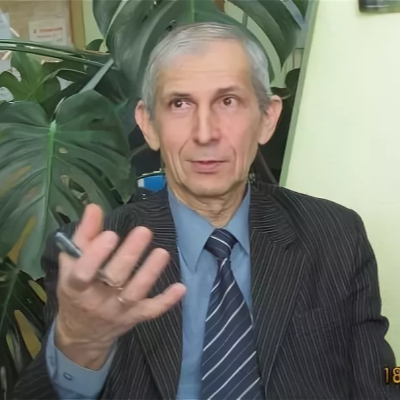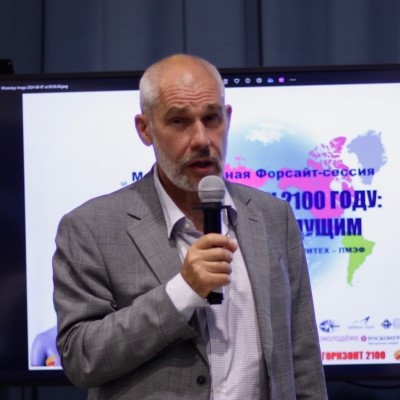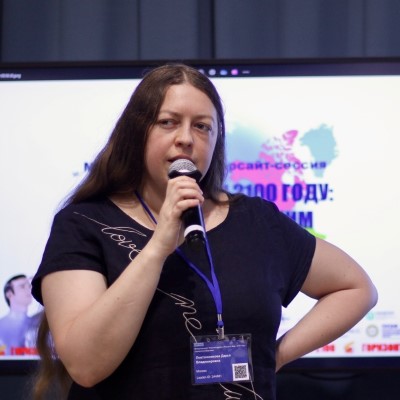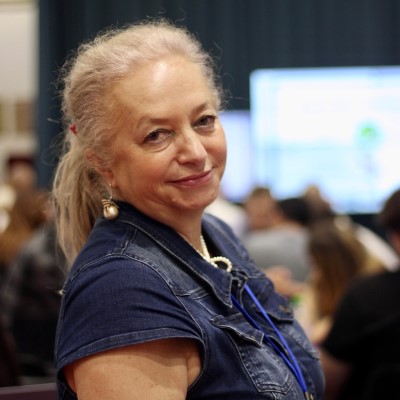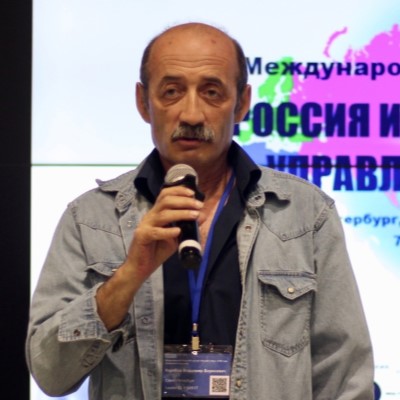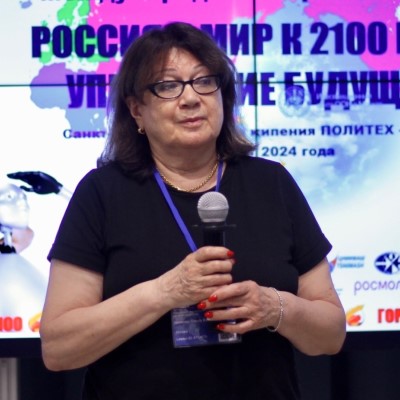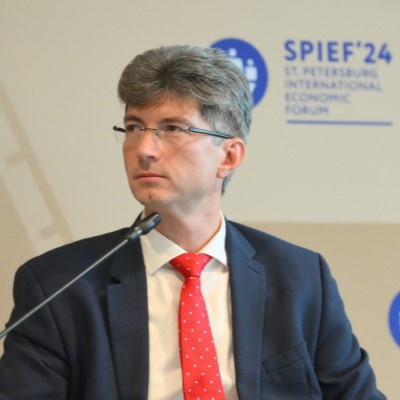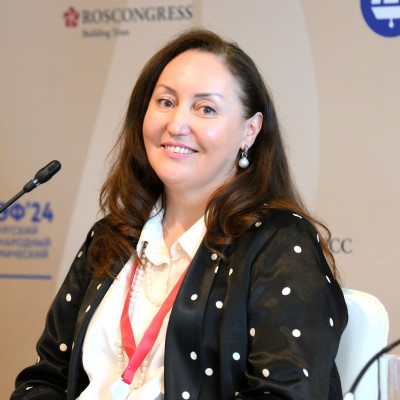
International Foresight session «RUSSIA AND THE WORLD BY 2100: FUTURE MANAGEMENT»
The International Foresight session «Russia and the World by 2100: Managing the Future» is the key and final event of the international youth project «Horizon 2100» in 2024, where from June 6 to 8, as part of the foresight, teams worked on their vision of the future under the guidance of reputable experts. At the end of the Foresight session at the St. Petersburg International Economic Forum, the best projects about the future of its young participants were presented.
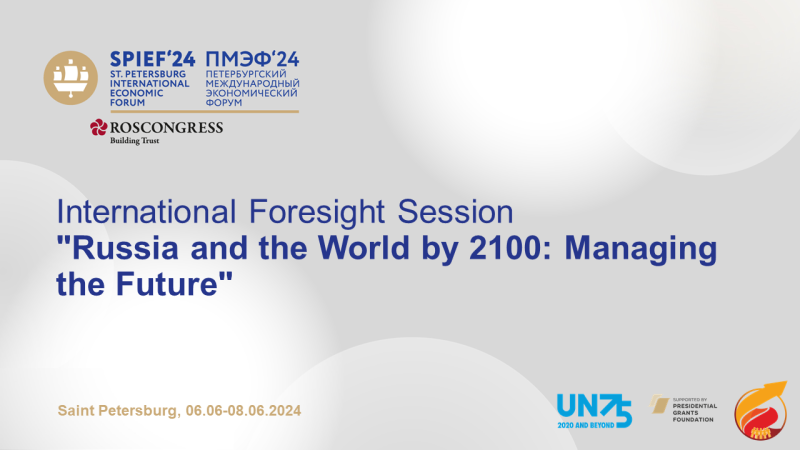
The International Foresight Session "Russia and the World by 2100: Managing the Future" is the key and final event of the international youth project "Horizon 2100" in 2024, held from June 6 to 8 in St. Petersburg.
The main purpose of the Foresight session is to motivate thinking young people from different countries to search for scientific, scientific-practical, science-fiction ideas about the distant future.
During the session, an interesting and unusual topic of scientific content was chosen, a kind of experiment was proposed: different generations of people came together in teams in Foresight mode, on the one hand, the generation of graduate students and students embodying the desire to see the future, endowed with energy and an active desire for positive change, and on the other – academicians, doctors of sciences, professors, representatives of public and business circles who joined youth teams and built their work with young people in such a way as to preserve their chosen direction, tolerantly support the flight of their possibly naive young scientific imagination and thought, but at the same time increase the level of knowledge and help build the internal logic of projects so that so that their long-term forecasts contain not only alarming expectations, but also future management decisions aimed at resolving them.
Following the results of the Foresight, the youth presented their projects reflecting their thoughts, ideas, suggestions and expectations at the session within the framework of the Youth Day of the St. Petersburg International Economic Forum’2024.
PROJECT KEY PERSONS
The foresight session brought together more than 50 participants from Russia, Venezuela, Guatemala, Guinea, Egypt, Zimbabwe, Spain, Kazakhstan, China, Kyrgyzstan, Luxembourg, Paraguay, Peru, Russia, USA, Ukraine, Montenegro, Ecuador, as well as 21 experts from Russia, Germany, Great Britain, Lebanon – a total of 18 countries. The large coverage of countries represented by young people makes it possible to analyze the opinions and vision of the distant future through the eyes of the young generation of different continents, who will have to shape this future on our planet.
EXPERTS OF THE FORESIGHT SESSION
FORESIGHT SESSION PROGRAM
DAY 1
June 6, 2024, Maximum Hotel, Polytechnic University, 14A Polyustrovsky Proezd
During the day, the participants arrived in St. Petersburg and checked into the Maximum Hotel of the Polytechnic University. After check-in, the participants were offered dinner. In the evening of the same day, an interactive training took place: acquaintance and consolidation of participants, intercultural, international communication and building effective interaction. The training was conducted by Olaf Hauer, a visiting professor from Germany. As part of the training, the participants, although they knew each other in absentia - as part of online preparation for the session - got to know each other, and then immersed themselves in the format of teamwork, received valuable knowledge in the field of interpersonal communication and interaction with each other and experts.
DAY 2
June 7, 2024, Boiling Point of POLYTECHNIC University, Polytechnic Street, 29, lit.
Moderator - Olaf Hauer
Participants of the HORIZON 2100 project and invited experts gathered at the Boiling Point site for a futurological session. The purpose of the session was to work out methods for system analysis of technological and industry trends. The session was opened by the author and developer of the project Irina Lvovna Osokina.
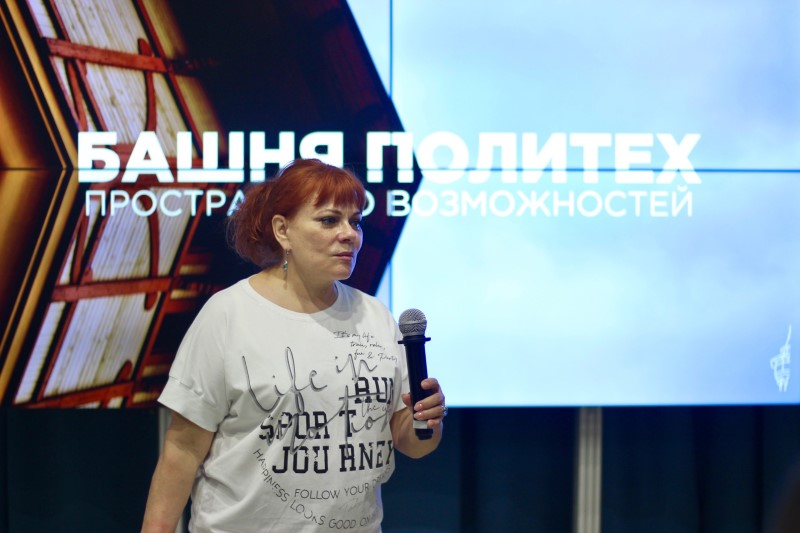
At the beginning of the session, leading Russian and international experts gave a parting speech to the participants, setting the mood for the whole day, which was entirely devoted to finalizing the projects that the participants had created during the month before the session in an online format.
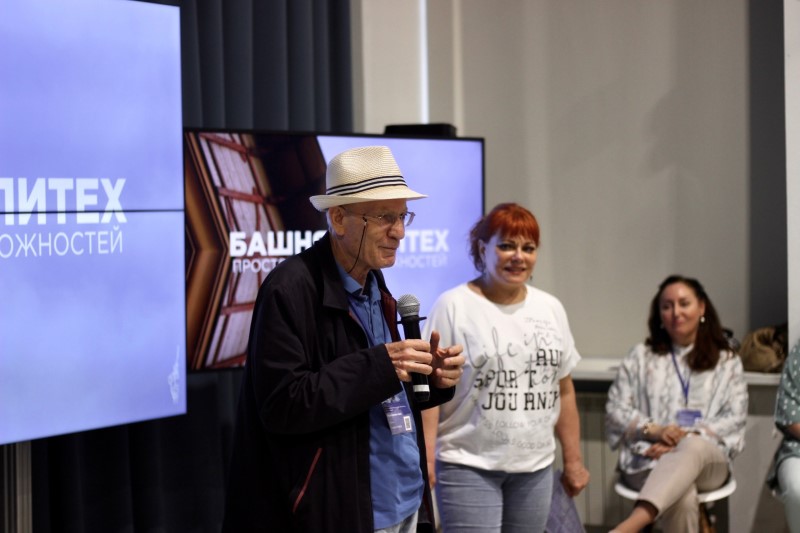
Before the start of the main track of the foresight, the teams presented their projects, in which they presented their vision of the future in accordance with the chosen direction. There were 7 directions in total:
- The Future of AI, Digital and Other Key Technologies
- The Future of Society
- The Future of the Human Environment
- The Future of the Global World
- The Future of the Environment and Sustainable Development
- The Future of Social Science in the Era of the Knowledge Economy
- The Future of the Global and Russian Economy
After the presentations of the teams, the members of the Expert Jury gave feedback on each of the submitted projects.
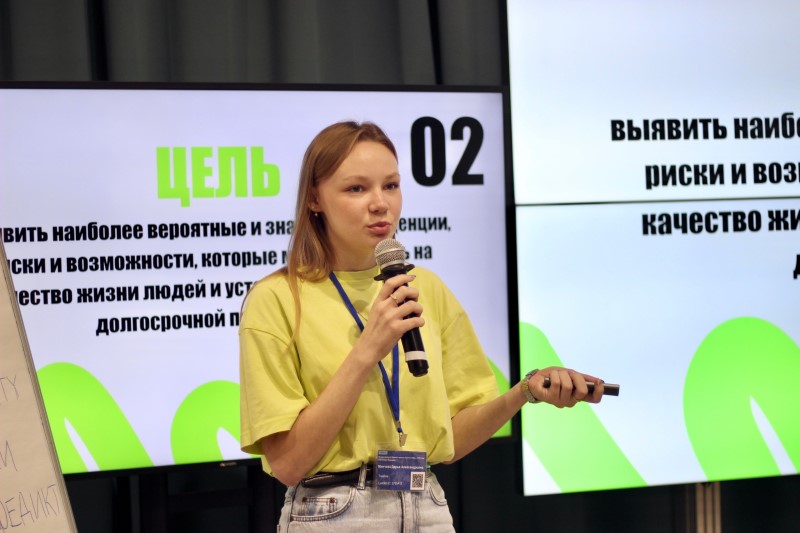
The moderator of the session, Olaf Hauer, introduced all participants to the rules of foresight and launched the main part of the event. The first stage of the session was the study by the teams of the submitted projects in the 2024-2050 research interval. taking into account the comments made. Experts assigned to each team also took part in the work of the teams – they helped to better navigate the chosen topic, shared their knowledge and experience in order to strengthen the projects from a scientific point of view.

The teams relied on a strategic approach in order to connect today's realities as much as possible with the timelines of the future they had prepared earlier, and in the afternoon they re-presented their projects for evaluation by the Expert Jury.
The second stage began with the establishment by Olaf Hauer of a new research interval - 2050-2100. The work on the models continued in groups: the foresight participants formed a vision of various models of the future, taking into account the opinion heard from the members of the expert jury. The development of possible strategies in the areas, the discussion and detailing of projects to form the desired future, the preparation of project presentations - strategies that were again presented to the experts began.
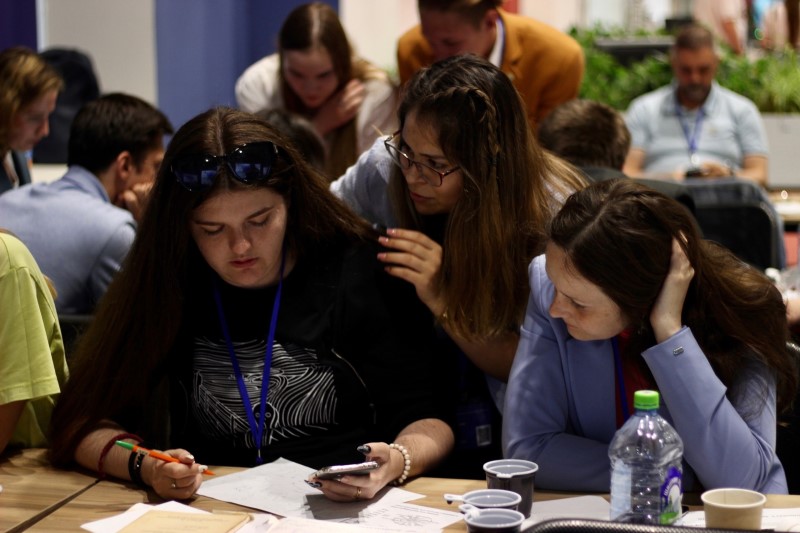
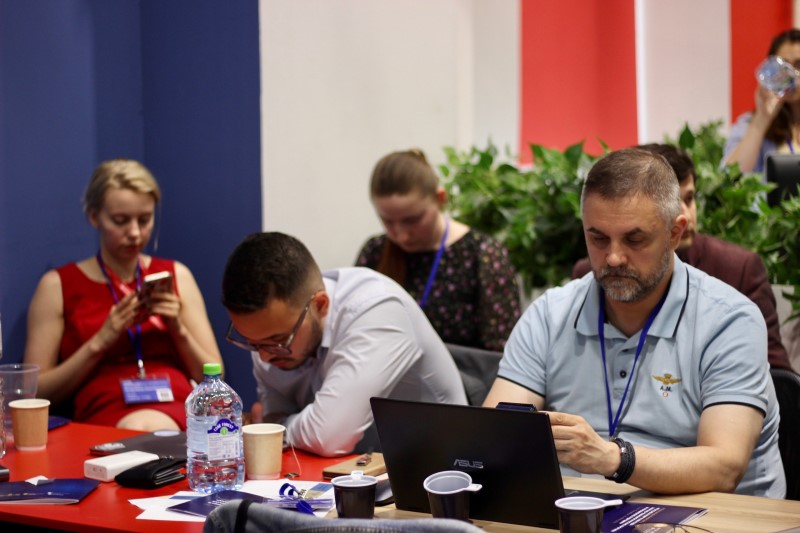
The third stage has begun: the refinement of strategies and projects taking into account the feedback from the members of the expert jury: checking the strategies developed by the research groups, critical analysis, eliminating the identified weaknesses and improving according to the recommendations received. After this stage, the teams presented their final versions of the projects on which they had been working throughout the foresight. Based on the results of the final presentation of the finalized projects by the teams, the members of the Expert Jury identified the best projects and teams to speak at SPIEF.
In addition, the developments of all 7 teams were integrated into a coherent, holistic picture of the future by 2100, its specific trends, scenarios and maps describing the main possible events that will affect the achievement of the desired goals of the desired future, comfortable for present and future generations . The project was also presented to all participants of the project session, and also finalized for presentation at SPIEF.
CLOSING CEREMONY OF THE FORESIGHT SESSION
At the closing of the forum, experts made a solemn speech, sharing their opinion on the past day, on the work done and the results obtained.
All participants and experts also signed an Appeal to the People of the World on the Future of the World, as Young People Want to See It, for subsequent submission to the UN at the foresight session at SPIEF.
The recording of the broadcast of the Foresight session can be viewed in our VK group:
THEMES AND TEAMS
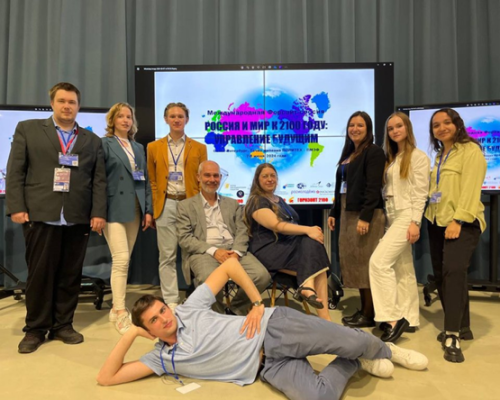
Team «Harbingers 5.0»
The future of AI, digital and other key technologies
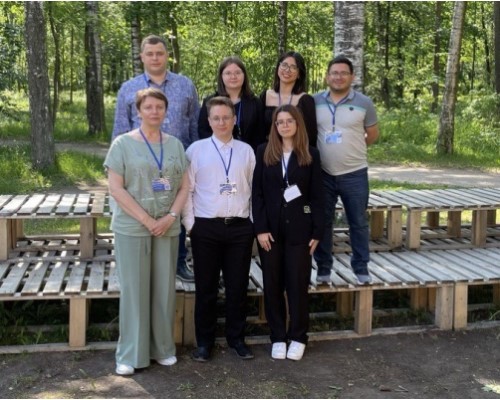
Team "FNC" (Future Navigation Committee)
The future of society
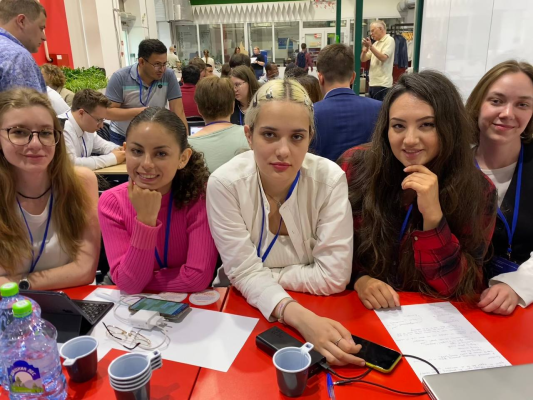
Team «BrainPro Society»
The Future of the Human Environment
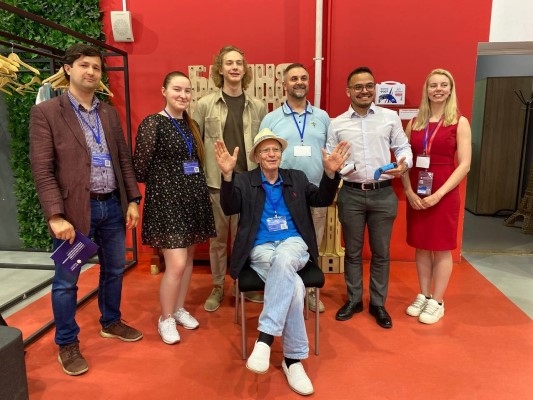
Team "Global Prediction"
The future of the global world
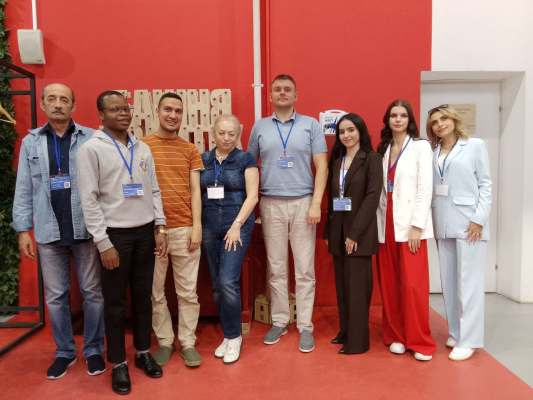
Team «Aurora»
The future of the environment and sustainable development
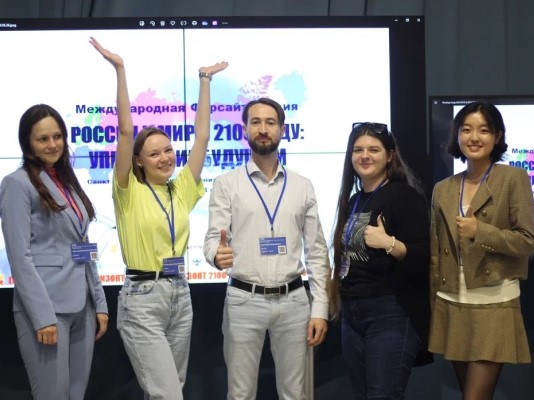
Team «Constellation»
The Future of Social Science in the Knowledge Economy Era
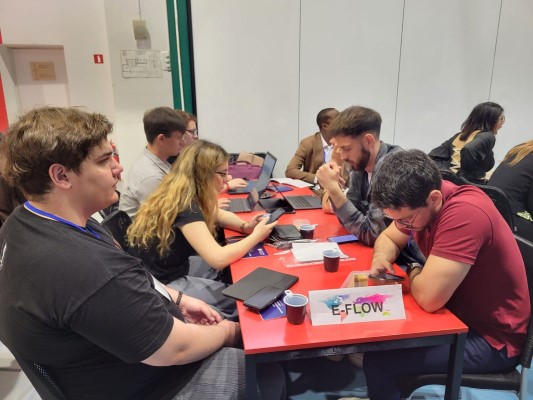
Team «E-FLOW»
The future of the global and Russian economy
As a result, the four best projects, according to the jury, were presented by the teams « Global Prediction », « Aurora », « Harbingers 5.0» и «BrainPro Society», who subsequently presented their work at SPIEF.

BRIEF DESCRIPTION OF PROJECTS
Team «BrainPro Society» in her project, she proposed the creation and implementation of the Interneural Network Space - a cloud network space for processing neural requests to support the life of connected citizens. It is a centralized information processing system in a completely electronic world, where everything works through an SME, from opening a door to slicing a tomato in the kitchen through a robotic machine, from buying plane tickets to uploading a report of a condition scan by nanobots to the hospital information database.
In the world with SMEs, there is a social rating system that dictates the level of interconnection and integration with SMEs (conditionally 0-1000). Social rating is determined by variables; law-abiding – violation of any laws leads to a corresponding decrease in social rating; the financial situation opens up additional opportunities; social strata/social classes, determined by the level of integration with SMEs, thereby determining access to the functions and capabilities of SMEs; public opinion - positive public opinion increases the social rating and will be a lever to prevent the formation of a limited elite of SME persons whose brain/consciousness is fully integrated into the SME.
Among the advantages of implementing this system, the participants highlighted such points as
- Efficiency and automation: The system manages daily tasks, freeing up time and resources for people.
- Instant communication: Communicating ideas and concepts directly to consciousness improves the accuracy and speed of communication.
- Improved Health: SME monitors health status in real time, improving medical care.
- Access to information: SMEs provide instant access to information, improving education and professional performance.
- Safety: Automated control and monitoring systems increase the level of safety.
- Motivation through SMEs: to motivate people to do good deeds through the social rating system, encouraging participation in socially beneficial activities and compliance with the law, which contributes to a harmonious and organized society.
Team «Redbringers 5.0» They also extended their vision through the prism of artificial intelligence to all spheres of human life. In their opinion:
- In the field of economics, in the near future, the largest technologically advanced countries, such as Russia, the United States, China, Germany and Japan, will begin to introduce artificial intelligence (AI) into macroeconomic analytics at the level of central banks and ministries of finance, which will be an important step towards more effective and accurate management of the economy.
- In the legislation of most countries, regulations will be developed aimed at regulating the use of AI and intellectual property issues.
- In the field of security, in the near future, there will be the creation of state cybersecurity agencies, which will play a key role in ensuring the security of information systems and networks of countries.
- AI will be actively used in state regulation, which will lead to improved management and increased efficiency of public services.
- The use of AI in solving demographic problems – helping to find a partner to create a strong family
Team «Aurora» In her work, she gave an overview of the current problems in the field of environmental protection, as well as forecasts and proposals for their solution for 2050 and 2100.
Continuing to live in the old way, the world will face increased climate change, pollution and resource scarcity by 2050, which will lead to economic crises and a deterioration in the quality of life. But if we act now, switch to clean energy and conserve natural resources, by 2050 we can achieve a thriving economy without harming the planet.
By 2100, Team believes that bioengineered crops that are resistant to climate change and pests will be a key factor in ensuring food security. The introduction of quantum computing in the field of environmental monitoring will make it possible to accurately predict and minimize the consequences of natural disasters, which will contribute to the prevention of environmental and emergency situations on a global scale.
Blockchain technologies will provide full transparency of production and supply chains, preventing exploitation and unsafe working conditions. Genetically modified crops that are resilient to climate change will make it possible to produce more food in a smaller area and with less environmental impact. Vertical farms in cities will use hydroponics and aeroponics to grow produce without soil and with minimal water use, making production more sustainable and affordable.
On the other hand, businesses should invest in the development and commercialization of sustainable technologies, as well as implement corporate strategies based on the principles of sustainable development and environmental responsibility. All this will help not only to minimize the environmental footprint of companies, but also to increase their competitiveness at the international level. In conclusion, Team concluded that the Environment is still able to provide humanity with the necessary resources in the future, but measures are needed to prevent its unrestrained consumption, leading to its degradation. Sustainable development can also provide an opportunity to find a balance in which the economy can continue to grow without harming nature.
Team «Constellation» The topic of her research was the transformation of consumer demand and preferences in the era of the knowledge economy: the main trends and features of consumer behavior.
In the opinion of the team members, in the future not only the economy, politics, society will change, but also a person as a person, a set of his needs, preferences and values. Already today, family values are being transformed, the number of nuclear families is increasing, and ties between generations are being broken. People are paying more and more attention to mental health and this happens for a number of reasons, including the instability of the international situation, rapid changes in many spheres of public life, an increase in the amount of stress, etc.
According to the team, due to the fact that more than 66% of the world's population (5.35 billion) use the Internet in 2024, the development of technology, its accessibility, and the increase in production lead to the fact that people are becoming more and more dependent on consumption. And humanity has an increasing need for security on the Internet when interacting with banks, stock exchanges, other people, etc.
In its predictive vision of the future, Team assumed that due to the increase in Internet consumption among all age groups, new markets operating exclusively in virtual reality will emerge in the future. In the future, the cyber insurance market will significantly expand its horizons - the circle of main consumers will increase, which will include not only legal entities, but also individuals, and the main demand will be a request for protection against the use of deepfakes, fraudulent schemes regarding the theft of data from bank cards, hacking personal pages on social networks, and more.
The labor market will also change significantly, and there will be several times more "cyber" professions than professions that need to be performed in reality. At the same time, according to the team, existing professions will continue to transform and move to the virtual space, new professions will appear, such as "cyber policeman", "AI designer", etc.
Team «Global Prediction» decided to focus on building a model for the development of globality. They believe that it is the duty of young explorers not to give a hopeful map of the future journey, but to give a general understanding of the routes that we, as a civilization, can take during the expedition called "Deglobalization". In her opinion, the processes that are now emerging in world politics are not the personal desire of any individual or an accident. It is the relationship between the countries of the world-center, semi-periphery and periphery, within the framework of the processes of globalization, glocalization and de-globalization, that forms a unipolar, multipolar and bipolar system of globality, respectively. Based on the found pattern of the development of the global world, Team collected 5 options for this development until 2050 and came to the conclusion that all probable options are mostly negative. In her opinion, when one hegemon changes to another, the very essence of relations between states does not change. Even with the victory of the new hegemon in the absence of serious damage to the potential of our civilization, the chance of subsequent deglobalization has the same probability as the current deglobalization. In other words, there is a certain reason for the emergence of relations between states, which gives rise to socio-economic crises. Such a reason, in our opinion, is the very essence of the socio-economic model: in a system where competition and exploitation of the weak in the economy is the norm, international relations will also develop in this paradigm. This system is not aimed at human well-being, it is aimed at making a profit.
The team proposed to create a new socio-economic system based on common interests, needs, economy, social structure and culture, increasing the survival of mankind as a civilization - the more adaptable the system is, the more it has a margin for modernization and a margin of safety, the longer and better it will exist.
The members of the Global Predicate team believe that in the future it is necessary to follow the path of managing the future and in such a way as to abandon the model of unequal exchange. A unified system should be aimed primarily at the benefit of people and the highest value of this system should not be profit, but progress. And everyone should give up excessive consumption, due to the balanced development of all people and the solution of global contradictions of society. A person must move on to the next epoch, otherwise changes will crush him and leave him on the sidelines of universal development.
Team «FNC» She has prepared a project to create an independent international organization called The Navigation Committee of the Future. It is an organization that develops forecasts and mechanisms for managing the future in order to create a healthy society, maintain the level of social development, preserve traditional values and cultural heritage. The team's motto explains the whole idea of the development of the KNB: "We are responsible for our future!". The project includes the following sections: scientific and technological breakthroughs; Economic development; Healthy society; Social development; Future Management. The main objectives of the Navigation Committee of the Future: 1. Development of new models and approaches to equitable development and global growth. 2. Combining the efforts of partner countries to overcome crisis situations and threats in the economic sphere. 3. Establishing international cooperation to achieve economic security and effective development. 4. Development and implementation of mechanisms for successful trade and financial cooperation between the countries that make up the National Security Council. 5. Improving the standard of living of the population of the participating countries. 6. Uniting countries to develop an innovative global economy. 7. Reform of international institutions.
Team «E-FLOW» She devoted her work to a detailed analysis of the future of the global and Russian economies by 2100. The key trends and challenges that will shape the economic future were considered, including the evolution of professions, the need for rapid adaptation, digital leadership and the transition to a digital currency, as well as the dominance of multinational companies: Which is valuable in itself, participants from Spain, Paraguay and Russia saw significant potential for Russia's economic development in their forecasts.
- AI and GDP. According to the statistical forecasts of the team, the introduction of AI in various industries will help improve production efficiency, optimize business processes, create new growth opportunities and ensure GDP growth of the Russian Federation by 46% until 2030; global GDP growth: according to research, global GDP will grow by 7%, and the growth of the global economy will be accompanied by an increase in demand for resources and services that will open up new business and investment opportunities.
- Public Administration. The team members believe that a significant increase in the share of digital cases related to public administration is expected. States will implement digital technologies to improve governance, transparency and efficiency of public services. Against the background of digitalization, the role of States in the economy will increase, which will become an important aspect of future development. States will actively support innovation, create favorable conditions for business and ensure the protection of citizens' rights in the digital space. This will require new approaches to regulation and cooperation at the international level.
The Team has drawn up a Roadmap for the Development of the Global Economy:
- 2030 - The Evolution of Labor Capital: New high-tech professions will dominate the labor market, which will require constant updating of workers' skills and knowledge; The formation of a new global economic model and the era of technology will become a key trend. Innovation, digitalization and sustainable development will play an important role in this process; the role of the state will change against the background of digitalization. States will actively participate in the process of digital transformation, creating conditions for sustainable development and digital well-being.
- 2045 - digital transformation, integration of sustainable technologies and the development of new economic models will become key areas of development. New regulations for TNCs aimed at reducing global imbalances and social inequality will be introduced. The States will cooperate to create fair business conditions.
- 2060 - strengthening of the trends that began in 2045, with an emphasis on further integration of sustainable technologies and the development of the knowledge economy. Cooperation at the international level will play an important role in solving global problems. The knowledge economy will become the foundation of global economic development. New technologies and innovations will stimulate growth and create new opportunities for business and society.
- 2075 – full integration of digital technologies will take place: by 2075, digital technologies will be fully integrated into all spheres of life, which will lead to an improvement in the quality of life and increase the efficiency of all processes. New economic models focused on sustainable development, human well-being and social responsibility will dominate.
- The year 2100 - the global economy will become fully digital and sustainable. All processes will be automated, and technologies will be used to improve the quality of life and protect the environment. Multinational companies will be integrated into global governance mechanisms, ensuring a balance between economic growth and social development. International cooperation will become the basis for solving global problems and ensuring sustainable development.
According to the members of the E-FLOW team, the future of the global and Russian economies will be determined by technological innovations, changes in the labor market and the dominance of multinational companies. Adapting to these changes will require significant efforts on the part of both government institutions and the private sector. Governments and companies will have to develop strategies aimed at sustainable development, digital transformation and social well-being in order to ensure prosperity in the new era of the global economy. Joint efforts will be aimed at creating an inclusive and sustainable economy where digital and environmentally friendly technologies play a key role. Investments in education, research and innovation will be the foundation for future growth and prosperity. Ensuring equal opportunities for all will be an important aspect, which will create a more just and sustainable society.
THE FINAL SESSION AT THE SPIEF:
"RUSSIA AND THE WORLD BY 2100: MANAGING THE FUTURE"
On June 8, as part of the Business program of the SPIEF Youth Day’24, St. Petersburg, Peterburgskoe shosse, 64/1
Moderator: Naumov Andrey Vitalievich
Thanks to the support of ROSCONGRES, experts and project participants from 18 countries took part in the foresight session "RUSSIA AND THE WORLD BY 2100: MANAGING THE FUTURE" on the margins of the SPIEF. On June 8, experts and participants arrived by bus at the Expoforum for the St. Petersburg International Economic Forum (SPIEF 2024) in order to present the results of their hard intellectual work as part of the Youth Day.

At 10:00 a.m., a foresight session began, moderated by the head of the Troitsk Separate division of the Lebedev FIAN, Corresponding Member of the Russian Academy of Sciences, Professor Andrei Naumov. The session began with a panel discussion, which was attended by Anatoly Wasserman, Deputy of the State Duma of the Russian Federation, Guy Alexander Eams, Chairman of the Council for Environmental Construction of RUGBC, an expert in the field of international investment and business support, MonMio & Energy Sarl Zulfiya Hannanova, Director of the Center for Scientific and Technological Forecasting at the Higher School of Economics Alexander Chulok, Head of the Department of Environmental Economics, Head of the Center for Bioeconomics and Eco-Innovation at the Faculty of Economics of M.V. Moscow State University. Lomonosova Sergey Bobylev, Deputy Academician-Secretary for Scientific and Organizational Work of the Department of Physical Sciences of the Russian Academy of Sciences Natalia Istomina, Chairman of the Council of the Center for Modeling the Future in Education, Science, Economics and Socio-humanitarian Sphere Irina Osokina and others.
The participants of the discussion considered global trends in the development of science, technology, and society; the place and role of Russia in the new world in the context of a change in technological structure; socio-economic challenges that gave rise to the transition to a new geopolitical world order and tectonic shifts in world economic development.
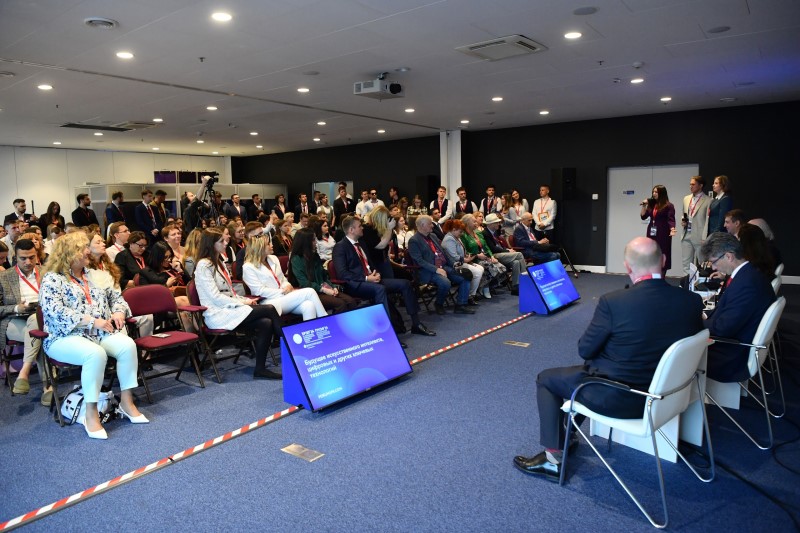
In the second part of the session, the winning teams presented the best youth foresight projects, which show the developed strategies for the development of the future until 2100, taking into account new trends: the digital world and artificial intelligence; innovations and technological breakthroughs; global urbanization and greening of the urban environment; global social transformation and population growth; global environmental change and improving the environmental friendliness of production and resource use; transformation of consumer demand and preferences in the era of the knowledge economy; globalization of business, increased flows of goods, services, human capital and international ideas; transformation of symbols of success and wealth in the dynamics of changes in modern society, the development of science about society and the further survival of mankind; global change of the world order.
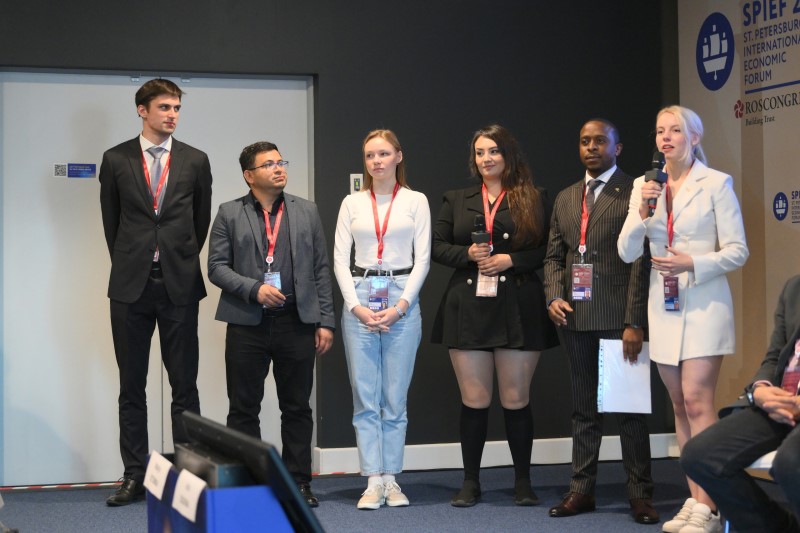
Also, the united team presented a common vision of the future by 2100, where, on behalf of all participants, the best future in which modern youth would like to live was shown. The speech ended with a solemn ceremony of handing over, on behalf of all young participants, an Appeal to the people of the planet about the future of the world, as young people want to see it, to representatives of the Russian Foreign Ministry for sending it to the United Nations.
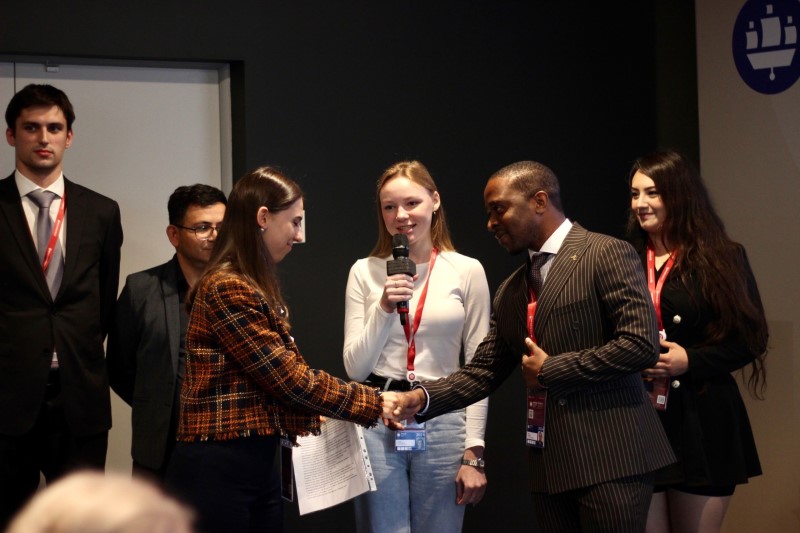
The finale of the session was the awarding of participants and experts with certificates for participation in the project.
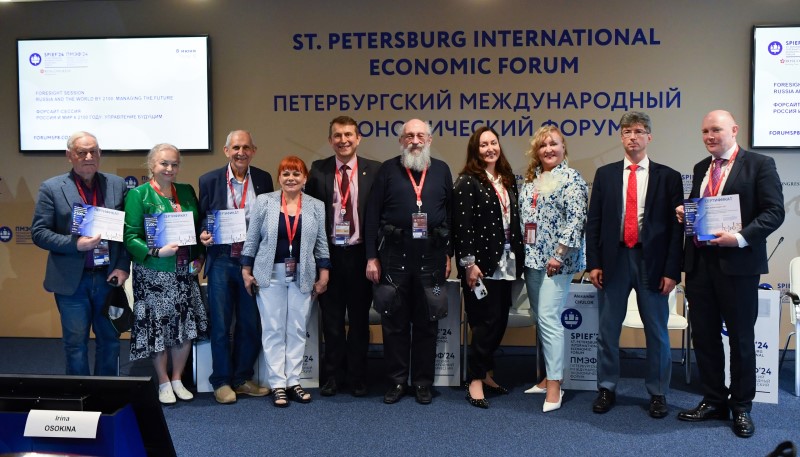
To see more photos, see the albums in our Vkontakte group
RECORDING OF THE FORESIGHT SESSION BROADCAST
INTERNATIONAL ORGANIZING TEAM
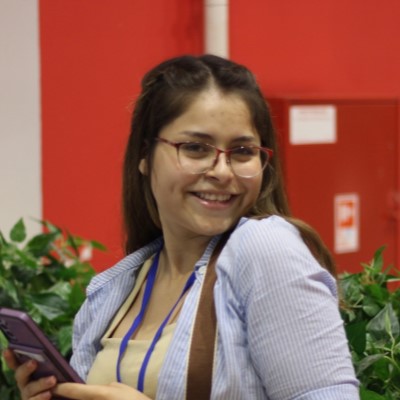
Genesis Ludeña
Ecuador
Main coordinator: ensuring work with youth tutors and participants, assistance in registration, interaction with venues
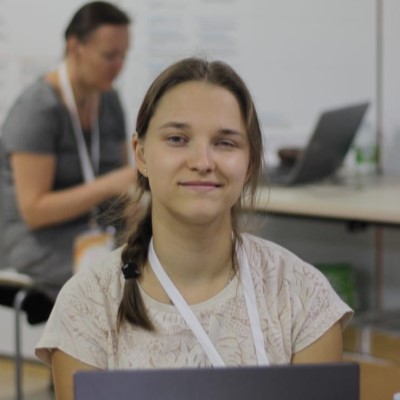
Anna Biyushkina
Russia
Assistant moderator: assistance during the moderator's work, solving tasks set by the moderator
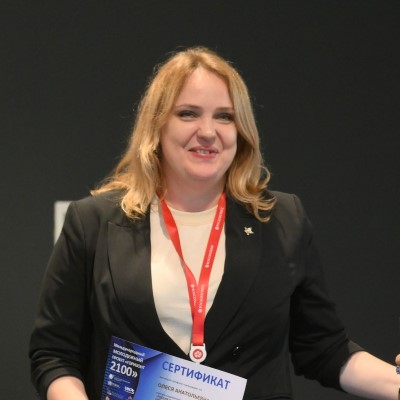
Olesya Chuiko
Russia
Coordinator for working with the media, preparation and distribution of the Announcement to the media. Interaction with media editors
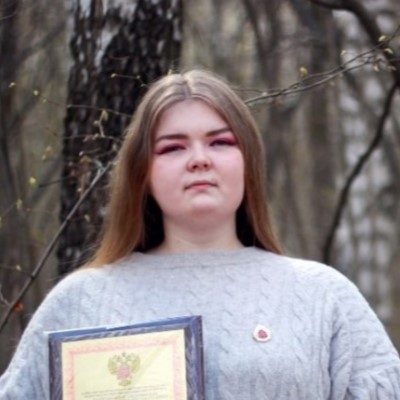
Natalia Kovalkina
Russia
Coordinator for Work with Experts: assistance in solving organizational issues, coordination of experts before and during the session
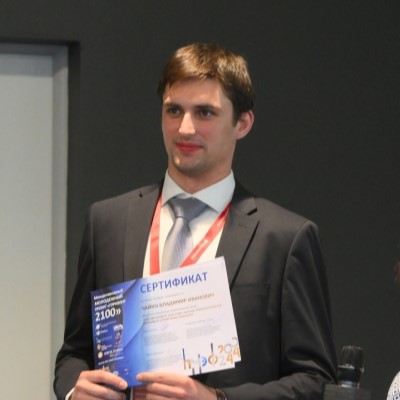
Stanislav Plotnikov
Russia
Member of the organizational team, youth tutor of the team "Harbingers 5.0"
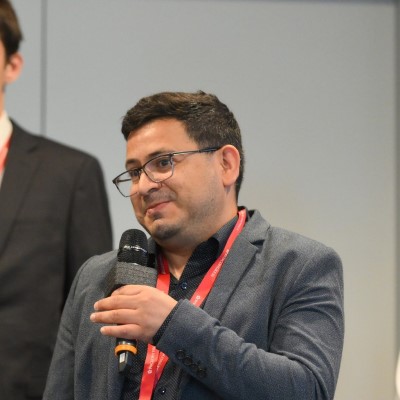
Mejia Rodríguez Eddie Augusto
Guatemala
Member of the organizational team, youth tutor of the «FNC» team
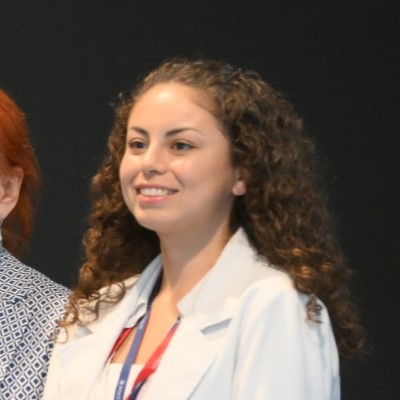
Arias Zambrano, Samantha Valentina
Ecuador
Member of the organizing team, youth tutor of the BrainPro Society team
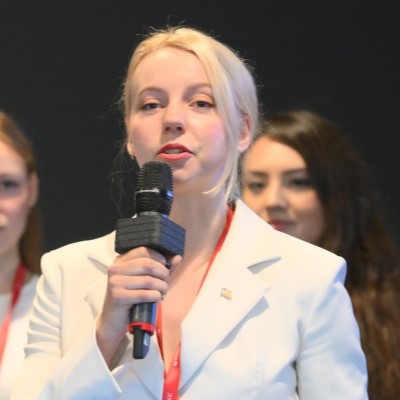
Rachel Ashley Florimel Lloyd
USA
Member of the organizing team, youth tutor of the Global Predict team
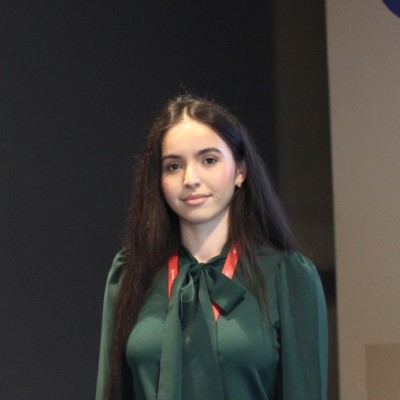
Roza Tazayan
Russia
Member of the organizing team, youth tutor of the Aurora team
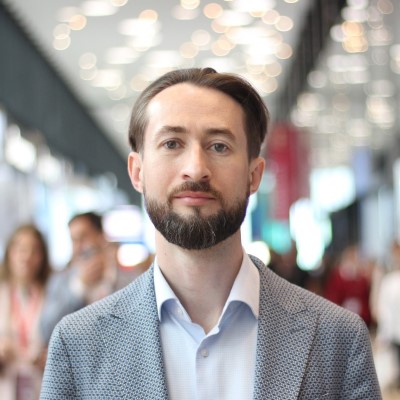
Ivan Ryabov
Russia
Member of the organizational team, youth tutor of the Sozvezdie team
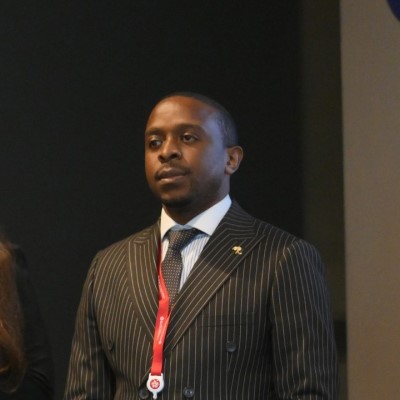
Regis Ruzani
Zimbabwe
Member of the organizational team, youth tutor of the "E-FLOW" team
FEEDBACK FROM PARTICIPANTS
Farah Suhail Naeem, Lebanon-Russia
Academician, Foreign Member of the Russian Academy of Education, Professor, President of the Open International University "Dialogue of Civilizations", Co-Chairman of the Jury of the HORIZON 2100 Competition
Positive aspects:
- The space for young people to express their views on the world of civilizations in the present and future with different component segments is expanding.
- The project covers young people from new countries well.
- The project is a "living" platform for dialogue and interaction in a positive atmosphere in a creative direction.
Advantages and disadvantages:
There was a dialogue between the generations, despite the presence of some negative aspects that arose in my group.
I think that some of the authors of the projects are in the spirit of liberal discourse. It is necessary to change this discourse towards a patriotic and reasonable choice of experts and approaches on various topics and directions.
One wish is to choose a topic for the future:
Russia 2100 in the global world as young
people see it.
It would be good if you connect a predictive topic:
About the possibility of the
formation of a space civilization and that the Russian Scientific and Philosophical School can present new
ideas and practical proposals for this process.
Bobylev Sergey Nikolaevich, Russia
Head of the Department of Environmental Economics, Faculty of Economics, Lomonosov Moscow State University, Professor, Doctor of Economics, one of the 15 world scientists and experts of the United Nations on sustainable development
In my opinion, the participation of the Horizon 2100 Project in the St. Petersburg International Economic Forum turned out to be very successful. It is worth noting not only the Foresight session "RUSSIA AND THE WORLD BY 2100: MANAGING THE FUTURE", but also the preparation of the session organized on June 7.
In general, the undoubted advantages of the entire event can be highlighted:
- The participation of young people from many countries, which undoubtedly contributed to the strengthening of international and purely friendly contacts. There is also a high probability of the emergence of international scientific youth projects based on participants;
- High quality of the young participants, their adaptability and creativity, which was reflected in the constant improvement of their potential presentations, clearer formulation of thoughts and theses during the three iterations of the preparation of their speeches for the PAMF;
- In general, young participants began to more clearly identify the challenges and threats of the future and likely activities to support favorable options for human development.
- Involvement of highly qualified experts of various specialties, which contributed to a more detailed discussion with youth participants of problems, trajectories and scenarios of the future from interdisciplinary positions;
As suggestions for future events of this kind, we can offer:
- At least a two-day period for the preparation of joint projects/presentations by young participants in a personal communication mode. In fact, a 12-hour work period within one day (June 7) showed a certain fatigue and a decrease in the creativity of young people by the end of the day;
- Clearer development of the main ideas of the project during the online work period before the face-to-face meeting.
I would also like to note the huge contribution to the work of Academician Y.V.Sidelnikov and Chairman of the Council of the Center I.L. Osokina. Without their input, participation in the Forum was not as effective.
Dmitry Olegovich Meshkov, Russia
Doctor of Medical Sciences, Head of the Laboratory of the V.A. Trapeznikov Institute of Management Problems
The event is certainly very important in modern conditions and allows you to form the right position for both young professionals and experts.
The analysis of the current situation and promising areas in the chosen field significantly expands the horizons of young specialists and allows them to review and adapt the competence of experts to modern conditions.
Communication between experts and young people makes it possible, first of all, to bridge the gap in science and scientific schools that has formed as a result of the loss of most middle-level specialists. If we continue to develop this line, then there is a chance to restore some of the scientific schools or create new ones that are most adapted to modern conditions.
In my opinion, the horizons of the young participants have expanded significantly, and they were able to adjust their position in relation to the chosen topic. Of course, such events need to be continued and developed. First of all, we should think about the possibility of improving the scientific and intellectual level of young people who have become laureates of the competition on a permanent and long-term basis, forming a scientific and managerial elite for new conditions.
At the same time, students' awareness of the event should be increased, and accordingly, the number of participants in the competition. In general, the event itself showed the possibility of screening students with high scientific, managerial and intellectual potential using fundamentally new methods of assessing this potential.
Moreover, the event is attended by highly motivated young specialists, which makes it possible to comprehensively evaluate them according to multiple criteria while simultaneously correcting perceptual distortions (which is inevitable with the modern mass education system) by the best available specialists.
The case is extremely necessary and extremely promising for the country in modern conditions. It can be considered as a pilot project that needs to be cloned and enhanced.
Lemtyuzhnikova Daria Vladimirovna, Russia
Candidate of Physical and Mathematical Sciences, Senior Researcher at the Institute of Management Problems of the Russian Academy of Sciences, Associate Professor at MIPT, Associate Professor at MAI
Horizon 2100 has been held for many years, this is not the first time I have been an expert at this event. This year, serious preparatory work was carried out: for the arrival of experts, the participants prepared their presentations, which they had been working on for two weeks. The task of the expert was to work out the material with the participants in such a way as to maintain their direction, but at the same time systematize the work. It was also necessary to build an internal logic so that the long-range forecast did not include technologies that are already available today, and the short-range forecast was not based on technologies that cannot be created at this point in time for objective reasons.
I worked with a group that researched the development of artificial intelligence and made predictions about how it would participate in our lives in the future. The first thing I came across was that the guys did not have a clear understanding of what artificial intelligence really is today, so our acquaintance began with a small lecture.
Then the work went faster: the guys structured their presentations, built a connection between their chosen areas of application of artificial intelligence, made short-term and long-term forecasts . All the work was done on the basis of existing trends in the development of artificial intelligence in Russia and in the world, further reasoning was based on real prerequisites.
In general, I am satisfied with the result, the participants took the matter seriously, showed high interest and productivity. I am very interested to see what kind of life path each of them will choose.
Zheltikova Inga Vladislavovna, Russia
Candidate of Philosophical Sciences, I.S. Turgenev Oryol State University, Associate Professor of the Department of Philosophy and Cultural Studies
-
What was interesting?
- Reflections on the future of young people are interesting in themselves, as they reveal their ideas about tomorrow, social fears and hopes, it is also interesting from the point of view that participation in the foresight session allows you to follow how the pictures of the future are built, what the participants are guided by (personal attitudes or what as they believe, the organizers expect them to do).
-
What was unexpected?
- There is a very high predictability of the pictures of the future, their triviality. Most of the projects described not the future, removed by 30-70 years, but a maximum of three years perspective. The universal accents were: AI, nanotechnology, and a focus on traditional values. There was no flight of fancy, unexpected pictures of the future.
- In the pictures of the future, there is traditionally no space, no description of leisure, sports.
-
The main luck?
- The participants demonstrated a willingness to change their projects, listened to comments, the ability to work quickly and hard, and the desire for self-improvement.
- The teamwork was well organized
- The joint project of the tutors turned out to be interesting.
-
The main failure?
- Short time frame. A foresight session cannot be held in one day. There is not enough time to comprehend and rethink the problem.
- Due to lack of time (60 minutes to create the second version of the project), the participants did not listen to each other's projects, therefore, on the one hand, the ideas were duplicated, on the other hand, there was no main thing for foresight – temporary adjustment of projects.
- Logical consistency within a single project was often violated, as well as the inconsistency of individual elements of the picture of the future (in the 50s, AI specialized in optimizing industry, in the 100s it seized power or approved the distance in education and progress in medicine).
-
What can be added?
- More clearly delineate the areas of projects, so that they complement, rather than duplicate each other.
- Divide the stages of work on projects not into periods (forecast by 2050 and 2100), but according to the degree of mutual conjugation of projects. For example, the second stage – the authors of the project adjust it taking into account 2 submitted projects, at the third stage they take into account the ideas of all other groups. That is, the participants take into account in their picture of the future what other teams represented, as if these were unforeseen factors.
- The "devil's advocate" should be added or returned.
- As an option: the team outlines 3-5 trends of the present that will affect the future. Other teams vote for them. As a result, 1 parameter remains for each team. Based on it, the team builds an image of the future on a timeline.
Istomina Natalia Leonidovna, Russia
Doctor of Physical and Mathematical Sciences; Deputy Academician-Secretary of the Department of Physical Sciences of the Russian Academy of Sciences, Professor of the National Research University of MAI
In the first lines of the report, I want to thank the organizers of the event: all the stages passed without delay, as a well-rehearsed process. At the head of each area of activity was a responsible leader: the selection of transport, catering, information notification, team placement, organization of meeting spaces, creating an atmosphere of goodwill and familiarity, including designers in the working atmosphere. Undoubtedly, the success of such well-coordinated work lies in the personality of the project manager, Irina L. Osokina.
The luck of the last session, in my opinion, lies in the given topic. The subject matter of the scientific content of the project is very interesting and unusual. It was set by the scientific director of the project Sidelnikov Yuri Valentinovich.
The fantasies of the young participants, gradually developing, led them to the idea that the responsibility of politicians in choosing future solutions should be based on resolving the disturbing expectations formed in the societies of different countries, understanding the challenges facing their countries in different ways, which is due to the difference in their mentality and culture of the environment . When we focus on the results of sociologists' research, we do not think about the phenomenon that the opinion of society expressed by scientists undergoes aberrations in research due to the fact that it reflects the subjective view of sociologists formulated in the tests they have compiled. Here, during the foresight session, opinions were born before our eyes, without prompting.
I was very interested in the format of working in teams that experts join at subsequent stages. It is fundamentally different from the principle of working on projects in which I previously participated as a leader, acting as a leader who sets goals for the team and suggests ways to achieve them. From this point of view, the experience I gained during the foresight session is unique and very valuable.
The material received by the participants during the foresight session not only increases their level of knowledge by working with knowledge carriers - modern scientists, but also fosters in them a sense of tolerance for the opinions of other people. The friendly ties that arise in youth in the process of working on projects, the participants of the session will carry on through life.
The opinion expressed in the speeches of the teams about the need to control everything was unexpected. There were thoughts about the possibility of a useful existence only of what is usable. These were emphasized by the authors of various projects - both in topics about the economic future of Russia, and in topics about the future of society under the influence of political decisions, and about the use of Artificial intelligence technologies. So far, the young participants have not had an understanding that movement cannot be controlled. I hope that their illusions about the possibilities of total control during the session have finally dissipated.
In this regard, there is a wish that in future events organized by the team "Center for Modeling the Future. Horizon 2100", the theme of the projects included themes of creativity, sports, love and friendship. These eternal values, which brightly illuminate people's lives, have fallen out of the consideration of the teams. Although it is for this purpose that the project of the international foresight session was created.
Ruiz Hernandez Francisco Manuel, Venezuela
Participant of the Foresight session
A cool project that allows young people from different countries to study and discuss new trends that are happening in our world. Together with my group, I managed to study the current geopolitical situation and current trends in international relations, which was very interesting for me as a future international lawyer. I am very grateful to the organizers for their impeccable work, without which an event of this level would not have taken place. I really hope to get to this event next year!!! Hello everyone from Venezuela.
Stanislav Plotnikov, Russia
Tutor, participant of the Foresight session
SPIEF 2024 was an unforgettable event for me, which left vivid impressions and gave a powerful impetus for further development. This event brought together many talented and ambitious people from all over the world who are ready to work on solving global problems and creating a better future.
I was particularly impressed by the atmosphere of the session, which facilitated an open dialogue and exchange of ideas. Participants from different countries and fields of activity were able to find a common language and join forces to achieve common goals. This was made possible due to the high level of organization of the event and the professionalism of the organizers.
One of the key points of the event was the opportunity to meet experts in various fields and gain valuable knowledge and experience from them. This allowed me to better understand current trends and directions of development, as well as determine my next steps in professional activity.
In addition, SPIEF 2024 provided a unique opportunity to establish new contacts and expand your social circle. I have met interesting people who share my views and aspirations, and I am sure that our cooperation will be fruitful and long-term.
In general, SPIEF 2024 was an important stage in my life, which helped me to reach a new level of development and open new horizons. I am grateful to the organizers for the opportunity to participate in this event and look forward to the next forum.
Chaiko Vladimir Ivanovich, Russia
Participant of the session, programmer of Sibirtechnosystem LLC, member of the personnel reserve of the International Scientific Research Institute for the Study of Management Problems (IMNIIPU).
Firstly, it was interesting to learn the vision of the life and future of representatives of other states. It seemed to me that although we are united in the fact that an attempt will be made to completely digitalize humanity, we (Russians) are laying plans for much more rights and freedoms. At the same time, we rely more on artificial intelligence and neural networks, while foreigners rely on data processing algorithms.
Secondly, there were more foreigners at this foresight session than at previous sessions. This really raised the level of interest among the participants, as in addition to forecasting tasks, there was a task to establish communication with representatives of other countries.
I consider the main success to be the appointment of Daria Lemtyuzhnikova and Sergey Kibalnikov to our experts, who talked about the work of the brain and established coordination between the team members. Thanks to them, we won a prize.
In addition, I consider it a great success that, after the foresight session in February 2024, right by SPIEF 24, I completed the creation of the website of the HORIZON 2100 contest participants club called "THE FUTURE". And very successfully carried out its launch, right to the SPIEF. My team was able to use this site in their work and invite everyone to join, becoming members of the club. Sometimes it seems to me that all events led to this moment.
During all three days of my stay in St. Petersburg, I simply solved all the problems regarding participation in the foresight session and the SPIEF. This is such a lucky period of time that I can't even believe how it could be so lucky. Everything is just great!
I think that the HORIZON 2100 project should, for the sake of experiment, try to add something else to the foresight sessions. To diversify and expand the format a little. Alternatively, groups of participants should come up with and start implementing some kind of project to realize a good future earlier. At the same time, present these projects at the foresight session along with their forecasts.
You can even try to divide our foresight session into 2 parts: in the first part projects are presented, in the second forecasts. A short sketch: day 1 of the congress – teams create presentations of their project and compete for places (several speeches with subsequent revision of the presentation). The following days pass as a regular foresight session. The winner is chosen by points, taking into account the scores of both parts of the session.
Alina Popova, Russia
Participant of the project
I would like to express my deep gratitude to the organizers, coordinators and all other persons who took part in this global event. All the events that took place over the course of 3 days interested me more and more, as every day I gained new knowledge and experience. Many were tired of the large amount of information, but everyone understood that it was worth working hard for a decent result. Which I think we have managed to achieve. Communication with foreign citizens also cannot be ignored, thanks to them I was able to practice using the English language. I don't even know what else to add, I just want to say once again - thank you so much for such a scale!
Tazayan Rosa, Russia
Tutor, participant of the Website session
It was interesting to work in international teams and practice English. Despite the familiar concept, the forum offers something new every year. I especially remember the participation at the SPIEF site, where a completely different level of the event was felt. Working with Olaf was incredibly interesting, and the idea of working with experts for teams significantly improved the quality of projects.
It was unexpected to see many new participants who had not previously been involved in forecasting the future. Initially, it was difficult to work together, but over time all the participants joined the process well. The Polytechnic University provided an excellent platform for performances, and the organization of the event was excellent.
The main success was the performances of experts and teams. The answers to the questions were informative, and the best teams fairly advanced to the finals. I would like to note the high-quality broadcast from Roscongress and a lot of beautiful photos. A small setback was the second day of performances, due to the confusion and lack of time to enjoy the finish. It is a pity that the results did not turn out to be more solemn.
In the future, I would like to keep the idea with experts in teams. Having new, interesting experts and more opportunities to communicate with them would be a big plus. It is also important to have more interaction between members of all teams and create a more informal atmosphere in the workflow. The Horizon 2100 forums are special events that bring together talented people from all over the world. Thank you for an unforgettable experience!
Tatiana Yakubenko, Russia
Participant of the Foresight session
An extremely interesting project that gives young people the opportunity to tell their brave thoughts and be heard and understood. This project also provides an opportunity to find new acquaintances with very interesting people. I am very pleased that you can immediately hear feedback from experts who are open to communication, who are indisputable authorities who have achieved great heights in scientific activity from completely different industries, and they are sincerely ready to help, direct, and support the ideas of young people. Special admiration is caused by the organizers, who are ready to answer any questions and concerns of the participants day and night, they are always there and will not leave in trouble. They will help you deal with any ambiguous request and situation, whether it is with regard to documents, directions, trips to your destination and much more. You can immediately see and feel how people are literally rooting for their project and sparing neither effort nor time for its benefit, for the benefit of the future of Russia and the world by 2100!
Regis Ruzani, Zimbabwe
Tutor, participant of the Foresight session
The SPIEF 2024 Forum has become an amazing event that allows you to learn more and see the future through the eyes of the younger generation, because the future belongs to them. To see the participants working hand in hand with experts in their chosen fields was unexpected because everything turned out so well. It's not easy to come up with ideas that the whole team will agree with, but in this case, it seems that the future is in safe hands. Time was so limited when it came to presenting projects, but seeing how the participants managed to work in such stressful conditions and squeeze projects into such a tight time frame turned out to be just wonderful. I hope that in future forums, projects will take the same central place at the SPIEF, since the future belongs to the younger generation!
Vitaly Chernyshov, Russia
Participant of the Foresight session
I will never forget these three days spent in St. Petersburg at the forum. It's all thanks to the organizers. The forum turned out to be eventful. A particularly important point at the forum, which I will note, is an interdisciplinary approach to our future, which consists in the fact that young experts from different branches of science (politics, philosophy, law, medicine, engineering, etc.), together with experienced experts of different age categories, looked for all possible ways to solve the problems of our future, first for different reasons directions (future of society, future AI, future of the global world, etc .).
Then everyone presented the overall picture of the world together, looking for common ground, differences.
It is especially important to note that both young and experienced experts were representatives of different countries - Russia, Ecuador, Peru, Great Britain, USA, Germany, Kazakhstan, etc.
Therefore, I believe that this forum should "gain momentum" and bring together more experts of different ages, different countries, to solve the problems of the future and the presentation of a unified vision of the future.
I am grateful to the organizers for the opportunity to present their ideas, values and views on the future of the world. I would also like to wish you fruitful work and success in continuing this business!!!
Mikhail Strezhnev, Russia
Participant of the Website session
One of the most significant international projects for me, which allows young people from dozens of countries to come together and build their own vision of the future. I have been participating in the forum for 2 times in a row, and every time I want to come again, so I would be very glad if this project continues to exist.
Kira Kuznetsova, Russia
Participant of the Website session
This project is the most incredible thing that has happened to me! I made a lot of friends, acquired new knowledge and skills from the best experts and got wonderful emotions!
This project has changed my life! I was surrounded by incredible people who inspired me every day. Every new knowledge and skill I acquired opened up new Horizons and opportunities for me. My soul is filled with joy and gratitude for all that I have received from this project.
PARTNERS AND SUPPORT
The project was implemented using a grant from the President of the Russian Federation for the development of civil society, presented by the Presidential Grants Fund.
The foresight session is organized by the Center for Modeling the Future, partners and co-organizers are the Presidential Grants Foundation, the International Research Institute of Management Problems, Peter the Great St. Petersburg Polytechnic University, the V.A. Trapeznikov Institute of Management Problems of the Russian Academy of Sciences; the Institute of Problems of Science Development of the Russian Academy of Sciences.
THANKS TO ALL OUR PARTNERS!

